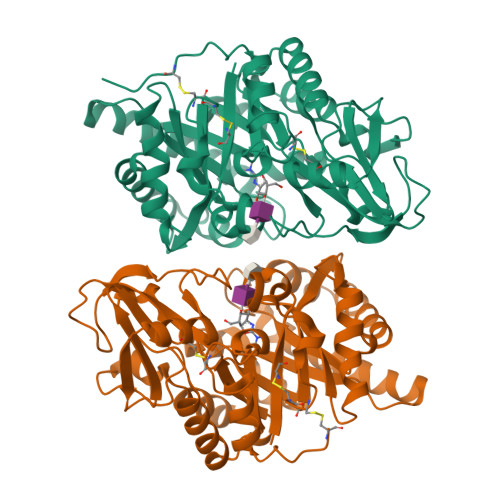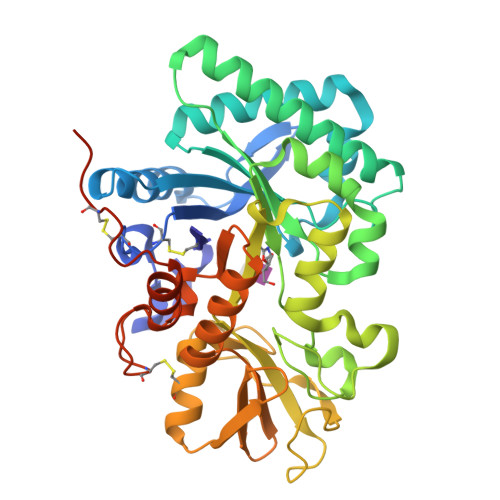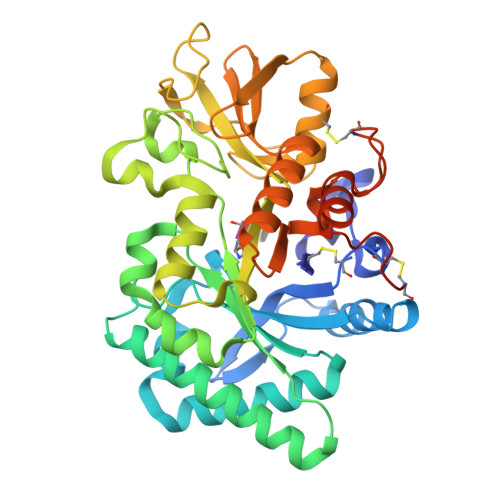Triad of polar residues implicated in pH specificity of acidic mammalian chitinase.
Olland, A.M., Strand, J., Presman, E., Czerwinski, R., Joseph-McCarthy, D., Krykbaev, R., Schlingmann, G., Chopra, R., Lin, L., Fleming, M., Kriz, R., Stahl, M., Somers, W., Fitz, L., Mosyak, L.(2009) Protein Sci 18: 569-578
- PubMed: 19241384
- DOI: https://doi.org/10.1002/pro.63
- Primary Citation of Related Structures:
3FXY, 3FY1 - PubMed Abstract:
Acidic mammalian chitinase (AMCase) is a mammalian chitinase that has been implicated in allergic asthma. One of only two active mammalian chinases, AMCase, is distinguished from other chitinases by several unique features. Here, we present the novel structure of the AMCase catalytic domain, both in the apo form and in complex with the inhibitor methylallosamidin, determined to high resolution by X-ray crystallography. These results provide a structural basis for understanding some of the unique characteristics of this enzyme, including the low pH optimum and the preference for the beta-anomer of the substrate. A triad of polar residues in the second-shell is found to modulate the highly conserved chitinase active site. As a novel target for asthma therapy, structural details of AMCase activity will help guide the future design of specific and potent AMCase inhibitors.
Organizational Affiliation:
Department of Chemical and Screening Sciences, Structural Biology and Computational Chemistry, Wyeth Research, Cambridge, Massachusetts 02140, USA. aolland@wyeth.com



















